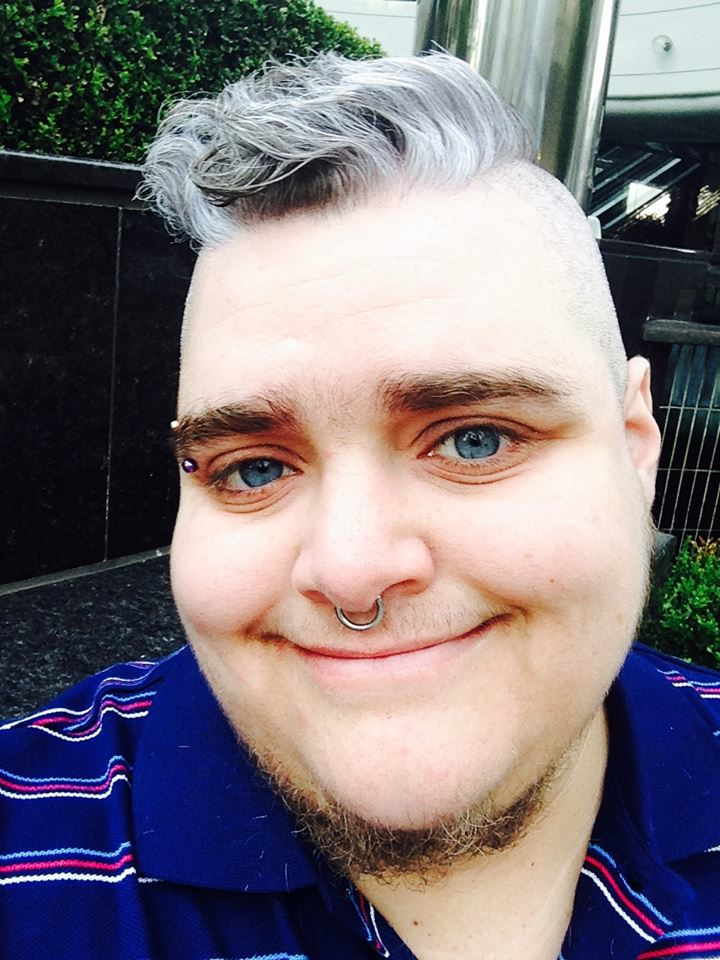The Canadian Women in the Literary Arts (CWILA) announced last month that transgender writer, poet, performer and scholar, Lucas Crawford, will be the 2015 critic-in-residence. This marks Crawford as the first transgender critic-in-residence for CWILA.
Crawford is currently a faculty member at Simon Fraser University, where he researches what he calls the “literary history of transgender.” He says that literature holds the creative reins for the direction in which conventionally skewed definitions of gender can be challenged. This is what he is hoping to do: challenge conventional ideas of gender within literature.
Crawford wanted to work with CWILA because of their open-minded views about gender, and how literature has a place in changing the social norms constructed around gender and sexuality. “What really resonated with me about them is that they are really committed to addressing gender injustices in the publishing world, but also they really foreground that they want gender queer people and trans people to be a part of their group and be a part of how they define women. So that really resonated for me that they didn’t have a binary or limited conception of women,” he says.
This limitless idea of what a woman can be in literature is at the root of what Crawford will bring to light. According to him, women’s literature and trans literature intertwine because “trans women, and gender queer women, and queer women, identified women, are women, so their perspectives in literature should be included in the priority of the group.”
Crawford points out that the issues women face, such as oppression and inequality, are not unique to those who identify as female. CWILA is working towards including all possible definitions of women and is using literature as a platform for change. As a writer, Crawford is breaking down these barriers regardless of personal identity, one word at a time. “I am writing about what it’s like for me to be seen as a woman, and treated as a woman, as a person who has a history certainly as a woman and as a person with a body that’s in many ways identified as a woman’s body.”
As critic-in-residence Crawford wants to address the tendency of most mainstream literature to rely on non-transgender stories as being universal for all readers. While a large portion of readers and writers might not be transgendered, the inability of the general readership to relate to trans stories needs to be addressed by open-minded people within the Canadian literary scene.
“So what I want to ask is how our normative or regular definitions of gender and sexuality are implicitly at the basis of how we connect to literature in Canada. And I think if you were to flip open almost any literary periodical in Canada, I want to emphasize you’d find lots of great work, don’t get me wrong, but quite a lot of it relies on finding in the reader sympathies or modes of connection that kind of have their basis in things…that are thought to be universal that are really cisgender, heterosexual conventions of living,” says Crawford.
The inclusion of all gender perspectives is a start, but Crawford says that it cannot stop there. It must extend through the entire establishment to change literary conventions so that everyone is equal between the lines of a book. “For me, it’s never a question of how can we include a few special people. We need to study the commitments and emotional investments of the establishment itself.”
That being said, Crawford stresses that while there are difficulties within the Canadian literary scene with accepting trans literature, there are lots of lovely people working within the establishment willing to give these stories a chance to be heard.
He believes that literature has the power to break down gender and sexuality barriers. The power of expression that literature holds, as well as its ability to be have a widespread effect, can have a major impact on public awareness.
The critic-in-residence position will allow Crawford to approach Canadian literary journals and periodicals about editing or curating a special folio of trans literature. Crawford will be reaching out to transgender writers to encourage them to get their work out there. He will also be reading and reviewing as many books as possible. Just as CWILA has an open-minded idea of what a woman can be, Crawford says he will be open to broadening ideas of what trans literature can be. “For that kind of project I think of trans openly, so books that are about transgender or written by trans people, or have themes that I think kind of relate to the project of queer and gender,” he says.
2015 will prove to be an exciting year for Crawford. He will be releasing two books of his own literary work this year, one being a book of critical essays called Transgender Architectonics, which is about early modernist writers’ conceptions of space and gender and how that has shaped current society. The second book is called The Highline Park Scavenger Hunt, a book of poetry written about the Highline in New York, which used to be a train track and is now a public park. Crawford says it was one of the earliest trans communities and this book is an “attempt to define transgender space poetically.” Both will be out in late 2015, making this year a very busy year for CWILA’s critic-in-residence.




